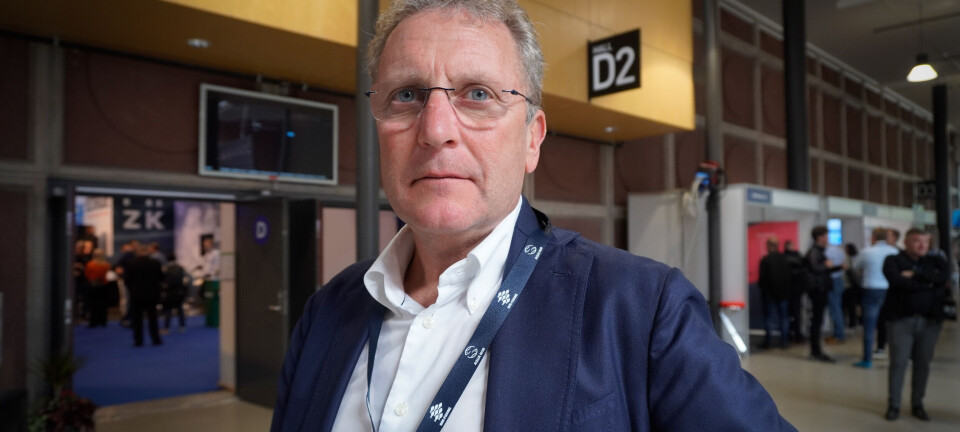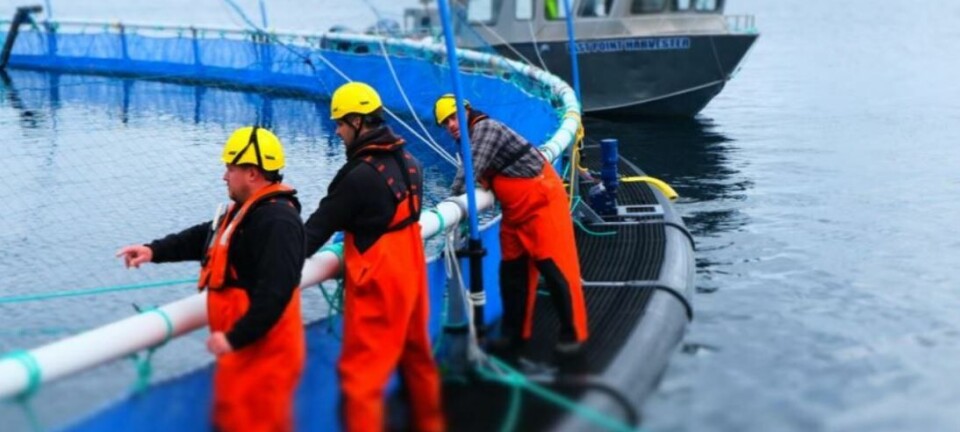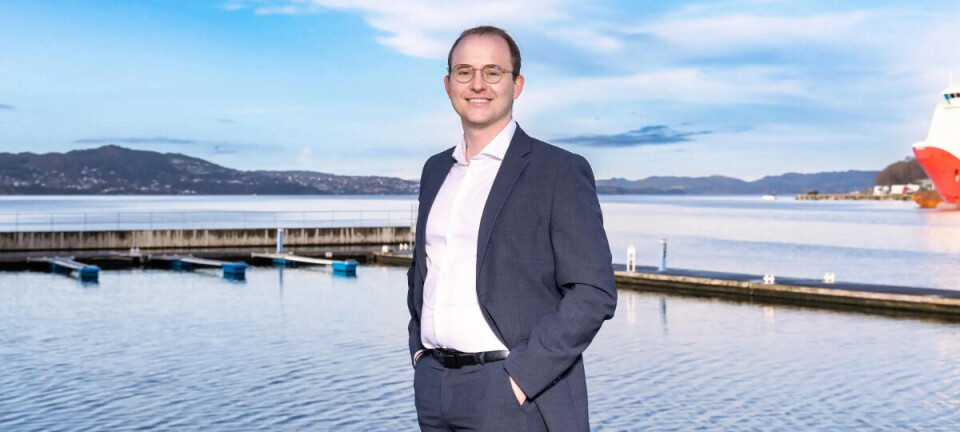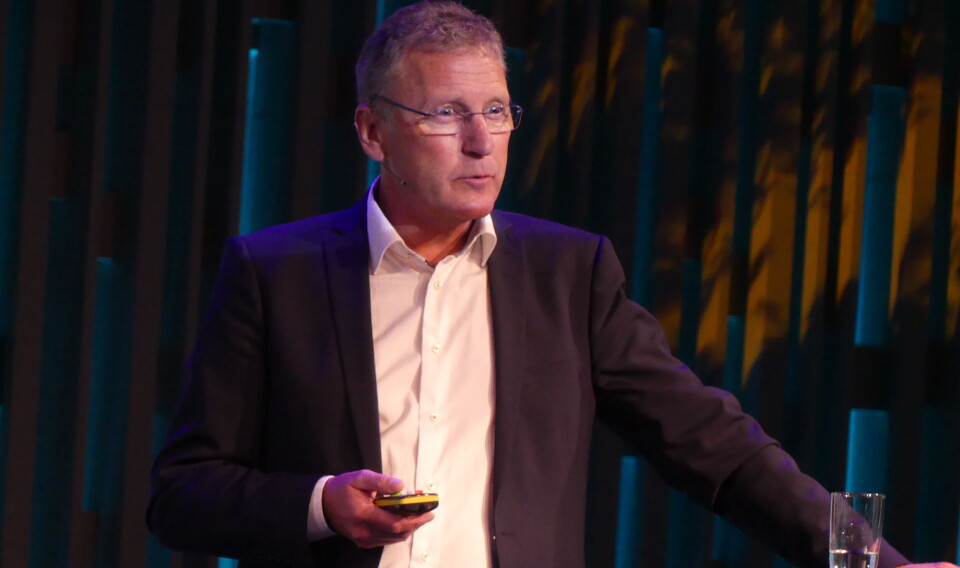
Grieg Seafood chief executive Andreas Kvame steps down
Norway and Canada salmon farmer Grieg Seafood today announced that Andreas Kvame has agreed with the board of directors that he steps down as chief executive after 10 years in the position. The board has started a search process for a new CEO.
Nina Willumsen Grieg, regional director of Grieg Seafood Rogaland, has been appointed interim CEO, with Kvame supporting the transition process. In line with good corporate governance, Per Grieg Jr. steps down as chair of the board and takes the position as a regular board member. The vice-chair of the Board, Paal Espen Johnsen, takes over the chair until the next general meeting.
In February, the company initiated a financial transformation programme, aiming to transform Grieg Seafood into a focused Norwegian seafood producer, concentrating on core operations in Rogaland and Finnmark.
A return to profitability
Grieg said that by streamlining its portfolio and reinforcing its financial foundation, it is positioning itself for a return to profitability and long-term sustainable growth in its home market. This programme will be executed as planned.
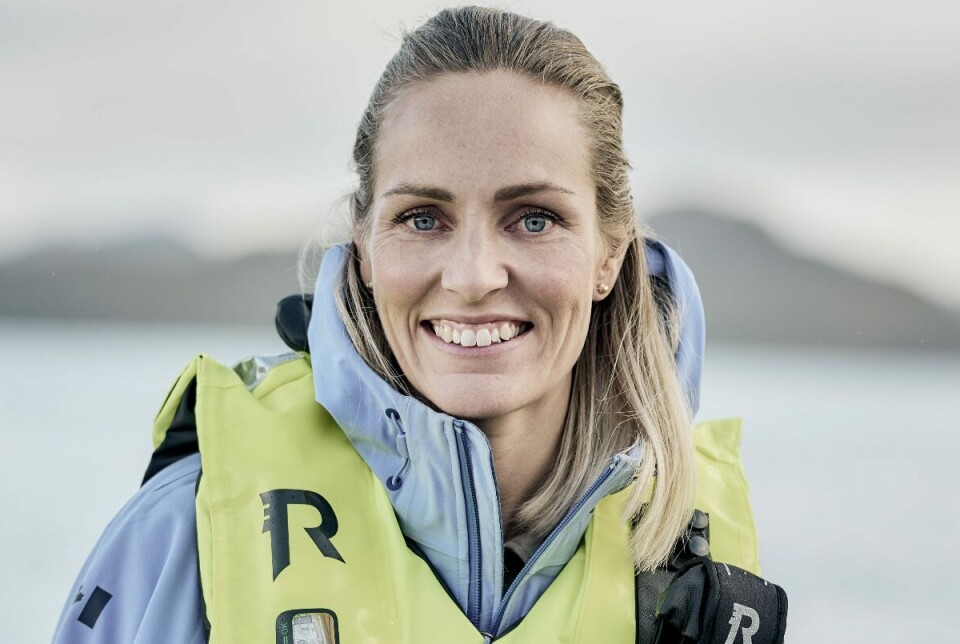
Nina Willumsen Grieg has worked in Grieg Seafood for 10 years in various executive, strategic and operational roles. During her four years of managing Rogaland, the region has shown strong results both financially and biologically.
Paal Espen Johnsen said: “Andreas Kvame has led Grieg Seafood for a decade. During his time as CEO, he has set the agenda for and executed the successful post-smolt strategy. He has played an instrumental role in developing Grieg Seafood into an international fish farming company with integrated operations. The strategic direction for the company remains firm. The work is ongoing, and I am confident that the measures will yield results. On behalf of the board, I would like to thank Andreas for his contributions over the years.”
A challenging time
Kvame said: “It has been a true privilege to lead Grieg Seafood for more than 10 years, and I want to thank all of my colleagues for their efforts. A main priority has been the development of post-smolt production, which I strongly believe will play an important part in the future of the entire salmon farming industry.
“Currently it is a challenging time for Grieg Seafood. As a result of the financial transformation programme initiated, the company has been stabilised financially and is positioned to take the measures needed for operational improvements. I wish my successor the best of luck and believe Grieg Seafood has a bright future ahead.”
From Scotland to Canada
Andreas Kvame’s decade at the helm of Grieg Seafood included the company’s withdrawal from Scotland and an expansion into Atlantic Canada that requires further investment to deliver on its promise.
Grieg sold its Scottish subsidiary, Grieg Seafood Hjaltland UK, to Scottish Sea Farms (SSF) for £164 million in 2021. The deal included Grieg’s freshwater hatchery, processing facility and 21 marine farms around the Shetland Islands and Isle of Skye which, combined, produced approximately 16,000 gutted weight tonnes of Atlantic salmon in 2020.
SSF has since sold the five Skye farms to salmon farmer Loch Duart and has integrated the Shetland operations into its own pre-existing farm estate in the archipelago.
Part of the rationale behind selling Grieg Seafood Hjaltland was that Canada showed more promise. Along with its existing operations in British Columbia, Grieg has exclusive rights to farm in Placentia Bay, Newfoundland. Permission to farm the bay came with the condition that the company uses sterile triploid salmon, to prevent farmed fish breeding with wild salmon if they escaped.
Grieg has built a hatchery at Marystown, NL, and harvested 10,700 gutted weight tonnes from marine sites in the bay last year, along with 12,500 gwt in BC.
Transition in BC
The value of Grieg’s operations in Canada has been reduced by NOK 1.7 billion (£125m / CAD 231m) due partly to the Liberal-led federal government’s plan to transition salmon farming in the province on to land or to in-water closed containment. Licences for open net pen farms in BC expire at the end of June 2029 and won’t be renewed unless the government changes its mind. In Atlantic Canada, a shortage of cash has delayed development in Placentia Bay, which has also led to write-downs.
Grieg is restricting investment in BC to maintenance spend and in February this year it said it was reallocating resources towards its strong Norwegian assets base, while maintaining its position in Canada.
